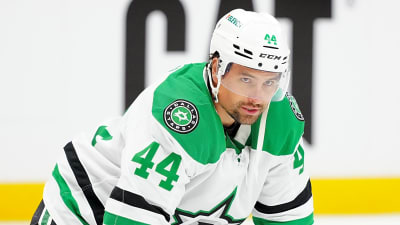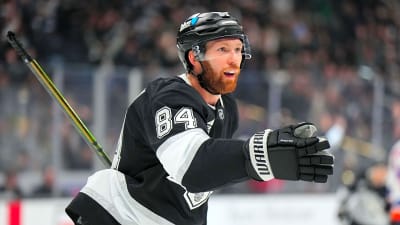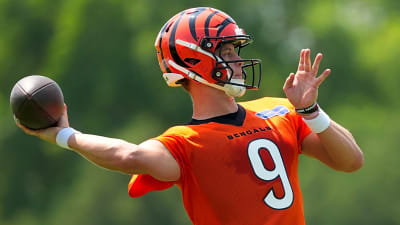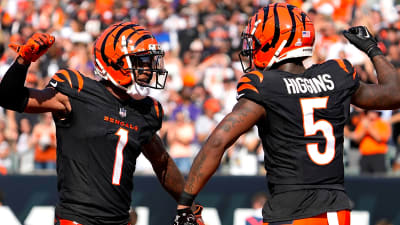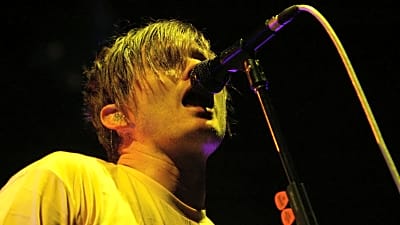- Home
- Quizzes
- My Quiz Activity
- Newsletters
- MY FAVORITES
- Add Sports/Teams
- SPORTS
-
NFL
- NFL Home
- Arizona Cardinals
- Atlanta Falcons
- Baltimore Ravens
- Buffalo Bills
- Carolina Panthers
- Chicago Bears
- Cincinnati Bengals
- Cleveland Browns
- Dallas Cowboys
- Denver Broncos
- Detroit Lions
- Green Bay Packers
- Houston Texans
- Indianapolis Colts
- Jacksonville Jaguars
- Kansas City Chiefs
- Las Vegas Raiders
- Los Angeles Chargers
- Los Angeles Rams
- Miami Dolphins
- Minnesota Vikings
- New England Patriots
- New Orleans Saints
- New York Jets
- New York Giants
- Philadelphia Eagles
- Pittsburgh Steelers
- San Francisco 49ers
- Seattle Seahawks
- Tampa Bay Buccaneers
- Tennessee Titans
- Washington Commanders
-
MLB
- MLB Home
- Athletics
- Arizona Diamondbacks
- Atlanta Braves
- Baltimore Orioles
- Boston Red Sox
- Chicago White Sox
- Chicago Cubs
- Cincinnati Reds
- Cleveland Guardians
- Colorado Rockies
- Detroit Tigers
- Houston Astros
- Kansas City Royals
- Los Angeles Angels
- Los Angeles Dodgers
- Miami Marlins
- Milwaukee Brewers
- Minnesota Twins
- New York Yankees
- New York Mets
- Philadelphia Phillies
- Pittsburgh Pirates
- San Diego Padres
- San Francisco Giants
- Seattle Mariners
- St. Louis Cardinals
- Tampa Bay Rays
- Texas Rangers
- Toronto Blue Jays
- Washington Nationals
-
NBA
- NBA Home
- Atlanta Hawks
- Boston Celtics
- Brooklyn Nets
- Charlotte Hornets
- Chicago Bulls
- Cleveland Cavaliers
- Dallas Mavericks
- Denver Nuggets
- Detroit Pistons
- Golden State Warriors
- Houston Rockets
- Indiana Pacers
- Los Angeles Clippers
- Los Angeles Lakers
- Memphis Grizzlies
- Miami Heat
- Milwaukee Bucks
- Minnesota Timberwolves
- New Orleans Pelicans
- New York Knicks
- Oklahoma City Thunder
- Orlando Magic
- Philadelphia 76ers
- Phoenix Suns
- Portland Trail Blazers
- Sacramento Kings
- San Antonio Spurs
- Toronto Raptors
- Utah Jazz
- Washington Wizards
-
NHL
- NHL Home
- Anaheim Ducks
- Boston Bruins
- Buffalo Sabres
- Calgary Flames
- Carolina Hurricanes
- Chicago Blackhawks
- Colorado Avalanche
- Columbus Blue Jackets
- Dallas Stars
- Detroit Red Wings
- Edmonton Oilers
- Florida Panthers
- Los Angeles Kings
- Minnesota Wild
- Montreal Canadiens
- Nashville Predators
- New Jersey Devils
- New York Islanders
- New York Rangers
- Ottawa Senators
- Philadelphia Flyers
- Pittsburgh Penguins
- San Jose Sharks
- Seattle Kraken
- St. Louis Blues
- Tampa Bay Lightning
- Toronto Maple Leafs
- Utah Mammoth
- Vancouver Canucks
- Vegas Golden Knights
- Washington Capitals
- Winnipeg Jets
- NCAAF
- NCAAM
- Olympics
- Boxing
- Entertainment
- Lifestyle
- Golf
- MMA
- Soccer
- Tennis
- Wrestling
- Sports Betting
- More Sports
- RESOURCES
- My Account
- YB on Facebook
- YB on Twitter
- YB on Flipboard
- Contact Us
- Privacy Policy
- Terms of Service
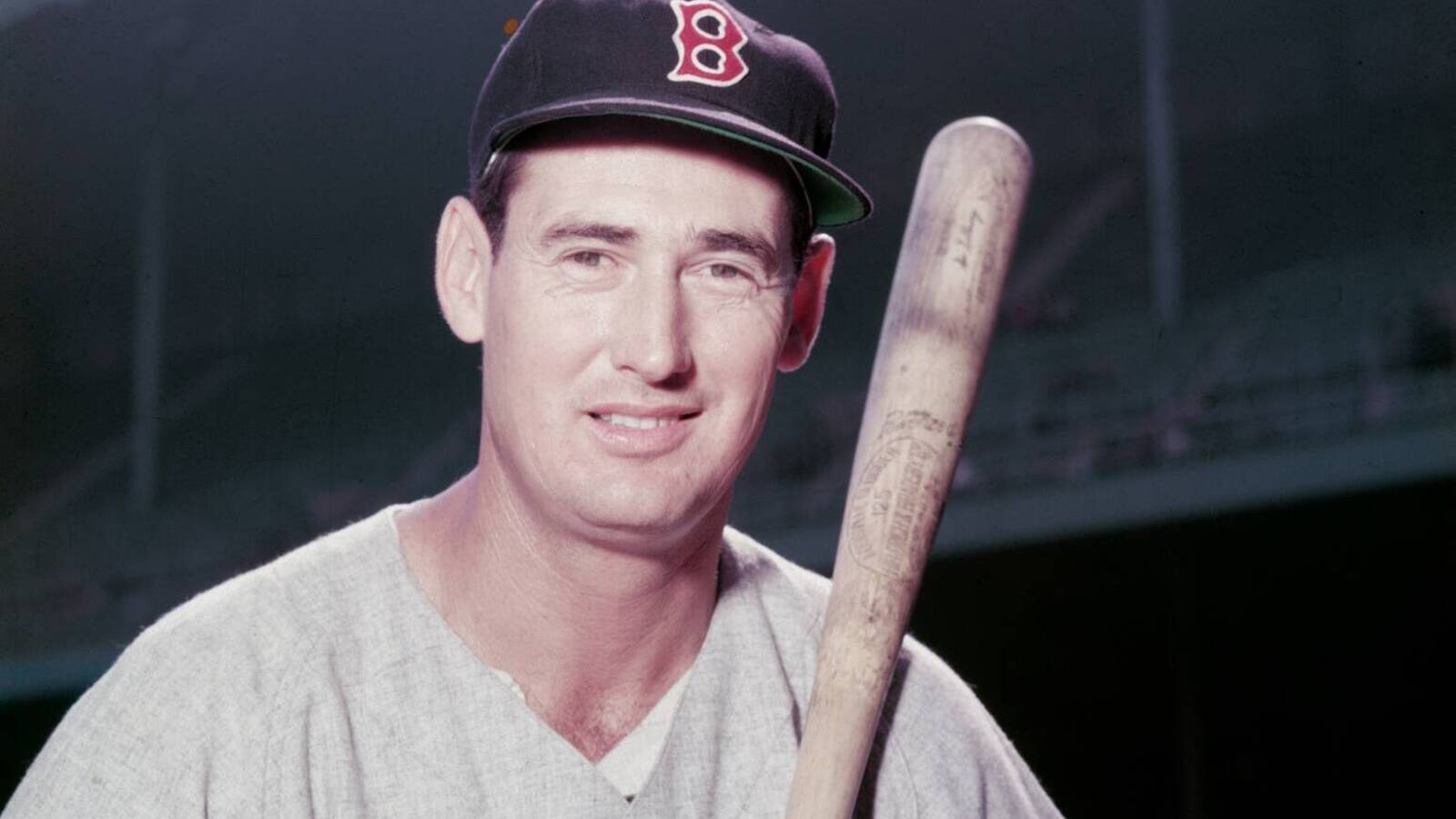
The 25 greatest performances in the MLB All-Star Game
Major League Baseball's annual All-Star Game showcases the game's best players at that moment. Those stars will shine even brighter on this grand stage if fans are lucky. There have been plenty of memorable individual All-Star Game performances through the years.
So, let's highlight 25 of the best.
25. Garret Anderson, Anaheim Angels (2003)

Played at the home of the Chicago White Sox and with home-field advantage in the World Series at stake for the first time, the American League continued its All-Star-Game dominance with a 7-6 victory. A three-time All-Star, Anderson won the 2003 Home Run Derby, then took home MVP honors by delivering a two-run homer for one of his three hits in four plate appearances for the AL, who rallied from a 5-1 deficit. Anderson's final hit -- a double -- sparked the AL's three-run eighth inning.
24. Brian McCann, Atlanta Braves (2010)

From 1997-2009, the National League went winless in All-Star Games. Then, in 2010, at Anaheim, the drought finally ended. Thanks to McCann, who never recorded a hit in his four previous All-Star appearances. However, with the bases loaded in the seventh inning and the NL trailing 1-0, McCann roped a double into the right-field corner off Chicago White Sox reliever Matt Thornton that cleared the bases and put his team up for good. It was the only hit in seven All-Star at-bats for McCann, who was named the 2010 MVP of the game.
23. Babe Ruth, New York Yankees (1933)

Let's return to the first official All-Star game in Major League Baseball history. Played at Chicago's Comiskey Park on July 6, 1933, the American League won 4-2 over the National League. Of the 36 All-Stars participating in the game, 20 became Hall of Famers. Led by Ruth, who belted a two-run homer in the third inning for one of his two hits on the game. Ruth also played in the 1934 All-Star Game, but went hitless in two at-bats.
22. Rod Carew, California Angels (1978)

To this day, only one player in the history of Major League Baseball's All-Star Game has recorded two triples in one contest. That distinction belongs to Hall-of-Famer Rod Carew. Batting leadoff during the 1978 contest, Carew tripled twice off fellow legend Vida Blue, which might be most impressive. While the AL lost the game 7-3 at San Diego, Carew proved that he could still play at an elite level despite residing in the second half of his career.
21. Fernando Valenzuela, Los Angeles Dodgers (1984)

The first of back-to-back performances highlighting the Hall-of-Fame Dodgers hurler. Let's start with the 1984 contest at San Francisco's Candlestick Park. In his third All-Star appearance, Venezuela came on in relief and pitched two scoreless innings, striking out three of the seven batters he faced. Those three strikeouts came while retiring the side in the fourth against fellow legends Dave Winfield, Reggie Jackson and George Brett en route to the NL's 3-1 victory.
20. Fernando Valenzuela, Los Angeles Dodgers (1986)

Sticking with Fernando, and fasting forwarding two years to 1986 when the Astrodome hosted the Major League Baseball's "Midsummer Classic." Though the AL prevailed 3-2, Venezuela, making his sixth All-Star appearance, again came out of the bullpen to follow NL starter Dwight Gooden. In three innings of work (something unheard of in today's game), Venezuela allowed a single hit without a run and struck out half of the 10 batters he faced during the game.
19. Torii Hunter, Minnesota Twins (2002)
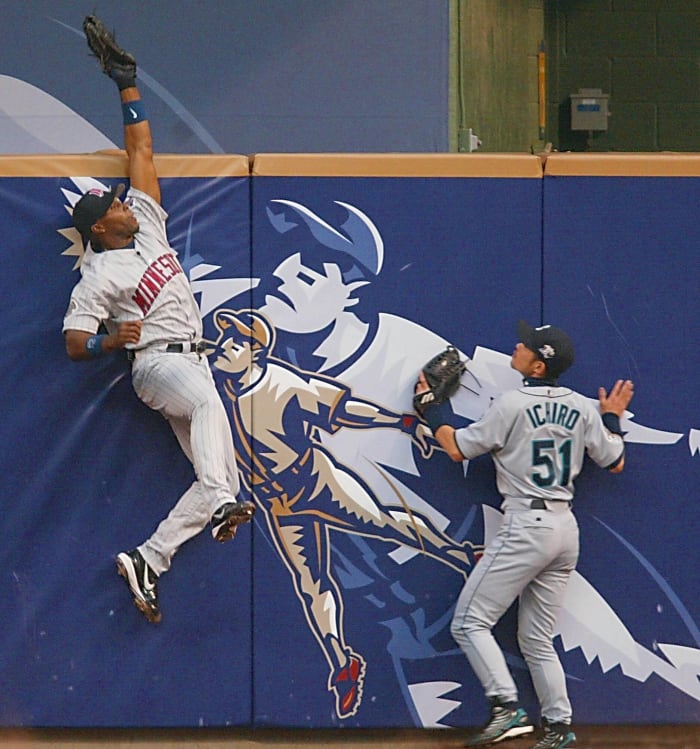
The two most notable takeaways from the 2002 All-Star Game in Milwaukee were that the game ended with a 7-7 score after 11 innings -- when both teams ran out of pitchers -- and Hunter robbed Barry Bonds of a home run in the first inning. Timing his leap perfectly, Hunter got his glove over the top of the right-center-field wall to make the catch, excite the crowd and keep the NL from getting on the board. And, in one of the great examples of sportsmanship and respect, Bonds picked up Hunter in jest as he took the field following the play. It's just one play, but certainly among the greatest defensive efforts in the history of the "Midsummer Classic."
18. Derek Jeter, New York Yankees (2000)

Twice during Jeter's sensational MLB career had recorded three hits in an All-Star Game. The first came during the AL's 6-3 victory at Turner Field in Atlanta. Taking the place of the injured Alex Rodriguez (how fitting?), Jeter went 3-for-3 with two RBIs and also scored a run en route to becoming the first New York Yankees player to be named All-Star MVP. While Jeter was the undisputed star of the game, he effort tends to get overshadowed by beloved Atlanta Brave Chipper Jones' homering in his home park.
17. Gary Carter, Montreal Expos (1981)

The 1981 All-Star Game is perhaps best known for being played after the player's strike was settled on Sunday, Aug. 9, at Cleveland. Play for the season restarted the next day, but having the All-Star Game usher the return of baseball proved to be a pretty special moment in the event's history. It was also a good day for Carter, who clubbed a pair of solo home runs to earn MVP honors as the NL rallied for a 5-4 victory. Carter is the fifth and most recent player to homer twice in an All-Star game.
16. Willie McCovey, San Francisco Giants (1969)

Joining Gary Carter in the All-Star Game two-homer club is the great Willie McCovey. Despite his Hall-of-Fame career, McCovey only posted three hits in 16 All-Star game at-bats. However, two of those hits left the park, and both came during the 1969 contest at Washington's RFK Stadium. Thanks to McCovey, whose homer well into the right-field stands with Hank Aaron on base, highlighted the National League's five-run third inning during its 9-3 victory. McCovey's second home run of the game came one inning later off Denny McLain in the fourth, thus securing MVP honors.
15. Phil Cavarretta, Chicago Cubs (1944)

Of the eight MLB All-Star Games from 1941-49 (no game played in 1945 due to World War II), the NL won just once. That came in 1994, 7-1 at Pittsburgh's Forbes Field, and the great Cavarretta was a major reason. This was back in the day when no MVP was awarded for the game. However, Cavarretta likely would have been the man going 2-for-2 with three walks and a run scored in five plate appearances -- still tied for most times reaching base in as many trips to the plate. Cavarretta also recorded 12 put-outs at first base.
14. Shane Bieber, Cleveland Indians (2019)

A last-minute replacement on the AL All-Star roster, Bieber certainly made the most of his opportunity to play in the "Midsummer Classic" for the first time. Better yet, he did so in his home ballpark with Cleveland as host. Coming on in the fifth inning, Bieber embraced the environment and struck Willson Contreras and Ketel Marte to completely throw the capacity crowd into a frenzy. With the crowd now chanting his name, Bieber capped the special night by fanning Ronald Acuna to end the frame and secure the All-Star MVP award in the AL's 4-3 win,
13. Fred Lynn, California Angels (1983)

Speaking of four RBIs in on one All-Star Game. Lynn, now playing for the California Angles and in his ninth and final All-Star Game, collected all of his with one swing against San Francisco's Atlee Hammaker. Playing at Chicago's Comiskey Park, Lynn's grand slam into the right-field seats was the centerpiece of the AL's breakout, seven-run third inning. To this day, it's still the only grand slam in the history of the MLB All-Star Game. Lynn was named MVP of the AL's 13-3 rout of the National League.
12. Tim Raines, Montreal Expos (1987)

Raines didn't enter the 1987 All-Star Game until the sixth inning, but he was arguably the most entertaining performer of this marathon pitcher's dual in Oakland. Raines singled in each of his first two at-bats and stole a base -- as he was known to do. Then, in the 13th inning, with the game still scoreless and a pair of NL runners on base, Raines laced a drive into the left-center-field gap that resulted in a two-run triple for the game's only runs in the 2-0 NL victory.
11. Arky Vaughn, Pittsburgh Pirates (1941)

Ted Williams might have hit the game-winning, three-run homer to give the American League a 7-5 victory at Detroit's Briggs Stadium, but Pirates shortstop Arky Vaughn proved to be the most consistent star to shine on the All-Star diamond in '41. In a losing effort and severely overshadowed by Williams, Vaughn went 3-for-4 with two home runs, two runs scored and four RBIs. The latter is still tied for the second-most single-game RBIs in MLB All-Star Game history.
10. Larry Jansen, New York Giants (1950)

The 1950 All-Star Game at Chicago's Comiskey Park was the first to be decided in extra innings -- 14 to be exact. The NL ultimately outlasted the AL for a 4-3 victory, and Jansen was completely stellar in his All-Star debut. The pride of the New York Giants, Jensen came out of the bullpen to throw an impressive five innings -- tying an All-Star single-game record -- of scoreless baseball. The right-hander yielded only one hit, did not walk a batter and struck out six of the 16 hitters he faced.
9. Cal Ripken Jr. Baltimore Orioles (2001)

For the 19th and final time, Ripken was an All-Star. And, did baseball's modern-day iron man truly go out in style. Ripken was slated to start at third base, but AL teammate Alex Rodriguez pushed him over a spot so he would officially be the game's starting shortstop. That certainly sent the Seattle crowd into an excitable frenzy. Then in the third inning, Ripken wrote his own final chapter to the All-Star portion of his legacy by opening the scoring with a solo home run. That essentially clinched MVP honors for Ripken during the AL's 4-1 victory.
8. Dave Parker, Pittsburgh Pirates (1979)

Offensively, "The Cobra" went 1-for-3 with an RBI and a walk during the 1979 "Midsummer Classic" at Seattle's Kingdome. Sure, that's a pretty good showing, but Parker was the game's MVP because of his arm. First, in the seventh inning, Boston legend Jim Rice tried to stretch a seventh-inning double, which Parker misplayed, into a triple, but the Pirates' superstar had other ideas and threw him out from right field. Then, perhaps the greatest outfield assist in All-Star history, came when Parker, from right field on a fly, threw out Brian Downing trying to score on a single to keep the game tied after eight. The NL got a run in the ninth for a comeback 7-6 win.
7. Roger Clemens, Boston Red Sox (1986)

Four starts into his historic 1986 season, Clemens struck out 20 batters in a game against the Seattle Mariners. Tabbed the All-Star Game starter, Clemens did not disappoint in his first appearance in the "Midsummer Classic" -- held at the Astrodome, near his high school home in the Houston area. Not only did Clemens throw three scoreless innings, but the eventual 1986 AL Cy Young Award winner and MVP, but he did not yield a hit and struck out two of the nine batters he faced en route to helping the American League to a 3-2 victory.
6. Bo Jackson, Kansas City Royals (1989)

There truly was nothing Bo Jackson couldn't do. So, perhaps it didn't come as much of a surprise when Jackson led off the bottom of the first in the '89 All-Star Game at Anaheim with a monster home run (traveling nearly 450 feet) to center field off NL starter Rick Reuschel -- with former President Ronald Reagan in the broadcast booth. Jackson went 2-for-4 with two RBIs and also stole base. He became the first player since Willie Mays to record an All-Star homer and steal in the same game to take home MVP honors during the AL's 5-3 victory.
5. Ichiro Suzuki, Seattle Mariners (2007)

Ichiro made history look easy throughout his career. Certainly one of the highlights of his legendary major-league run came during the 2007 All-Star Game at San Francisco. Suzuki went 3-for-3 with a two-run homer that turned a 1-0 AL deficit in the fifth inning into a 2-1 lead that the visitors would never give up. However, the manner in which Ichiro delivered his homer remains a major part of All-Star Game lore. Taking advantage of then-known AT&T Park's unique dimensions, Suzuki's drive to the right-center field took a weird carom off the wall, allowing him to circle the bases with relative ease for the only inside-the-park home run in ASG history.
4. Al Rosen, Cleveland Indians (1954)

The 1954 All-Star affair was known for its showcase of offense. The AL came through with an 11-9 victory at Cleveland's Municipal Stadium in a game that featured 31 hits. And, it proved to be a hometown hero who shined brightest among the majors' stars that day. Rosen, the Indians' slugging corner infielder, went 3-for-4, clubbing a three-run homer off Robin Roberts and a two-run shot off Johnny Antonelli. At the time, Rosen was the third player in All-Star history to homer twice in a game. Meanwhile, his five RBIs are tied for first all-time.
3. Pedro Martinez, Boston Red Sox (1999)

The 1999 All-Star Game at Fenway Park remains one of the most story-book moments in the history of Major League Baseball. The MLB All-Century was honored, and included ailing Red Sox legend Ted Williams, who proved to be the true star of the evening. However, when it finally came time for first pitch, Boston's current star took command. Martinez struck out the NL's first three batters - Barry Larkin, Larry Walker and Sammy Sosa. Then opened the second by striking out Mark McGwire before Matt Williams reached on an error. However, Martinez raised the decibel level at Fenway to seemingly astronomic heights when he fanned Jeff Bagwell on the front end of a strike-him-out-throw-him-out double play to end the inning and his own MVP performance during the AL's 4-1 triumph.
2. Carl Hubbell, New York Giants (1934)

We've highlighted several memorable All-Star game pitching moments, but what Hubbell accomplished in the annual star-studded affair's second official installment is still discussed. Hubbell started the game for the National League, and allowed the first two batters to reach. Then, in what's considered one of the great individual accomplishments in all of sports, Hubbell fanned Babe Ruth, Lou Gehrig and Jimmie Foxx in succession. Hubbell then opened the second inning by striking out Al Simmons and Joe Cronin. Those five consecutive strikeouts remain an MLB All-Star Game record.
1. Ted Williams, Boston Red Sox (1946)

We mentioned Williams' walk-off winning homer in the '41 All-Star Game. But, five years later, in his homeyard in Fenway, Williams truly delivered an offensive performance for the ages. The AL rolled to a 12-0 win over the NL as the Midsummer Classic returned after the 1945 event was postponed due to World War II. Williams, a fighter pilot during the war, added to his legacy by going 4-for-4 with two home runs, five RBIs, four runs scored and a walk. In the annals of great baseball performances, whether the regular season, All-Star Game or postseason, it's hard to top this WIlliams' gem.
A Chicago native, Jeff Mezydlo has professionally written about sports, entertainment and pop culture for parts of four decades. He was an integral member of award-winning sports sections at The Times of Northwest Indiana (Munster, Ind. ) and Champaign (Ill
More must-reads:
- Guardians pitcher target of sports betting investigation
- Yankees give concerning injury update on SP Clarke Schmidt
- The '2023 MLB home run leaders' quiz
Breaking News
Trending News
Customize Your Newsletter
 +
+
Get the latest news and rumors, customized to your favorite sports and teams. Emailed daily. Always free!
PRIVACY POLICY EDITORIAL POLICY CONTACT US
ABOUT YARDBARKER TERMS OF SERVICE
Use of this website (including any and all parts and
components) constitutes your acceptance of these
Terms of Service and Privacy Policy.
This site is for entertainment purposes only.
There is no gambling offered on this site.
Gambling Problem? Call 1-800-Gambler.
